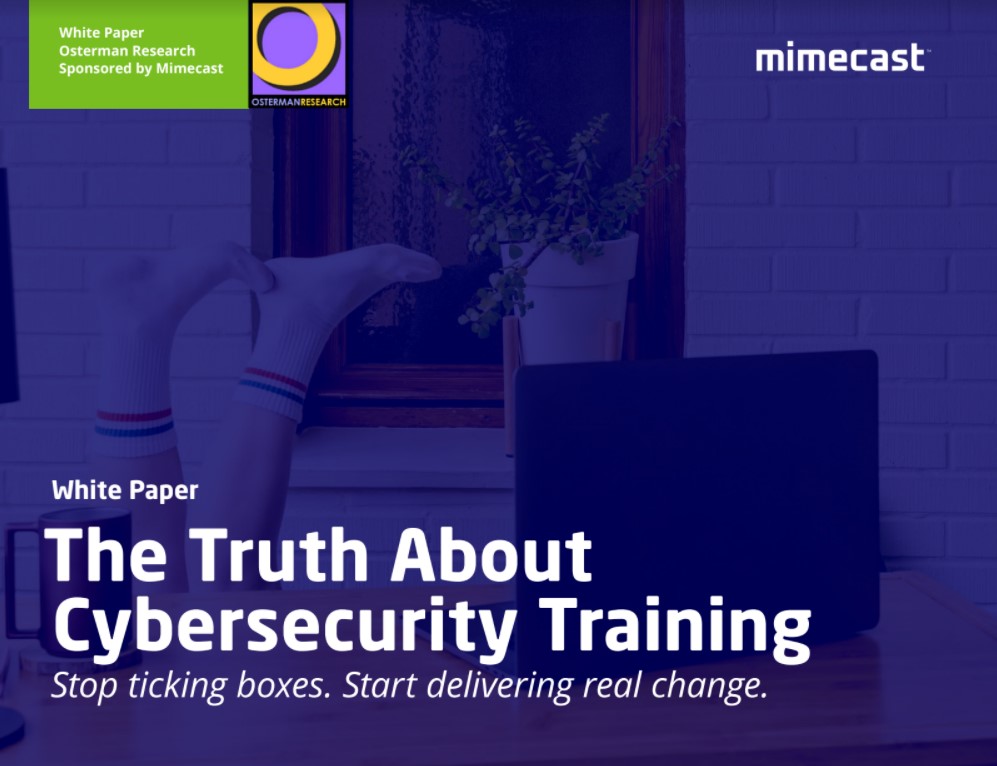What getting hacked taught me about cyber empathy
The industry needs a little less ‘I told you so’ when it comes to dealing with victims


It's time to dig out your tiny violins and sharpen your bows: I have a confession to make. Earlier this year, I was hacked.
If you're among the ten million or so people who take part in the free-to-play Fantasy Premier League (FPL), then you probably know where I'm going with this. In April, a cyber intruder – probably complete with the staple oversized hoodie and balaclava – seized my password and broke into my FPL account, dismantling my crack team and giddily selling off my most prized assets like a turbo-charged Margaret Thatcher.
No, it wasn't a serious breach, and they compromised nothing important but, oh man, was it devastating. All that planning, progress, spreadsheets, hours wasted; all to trash my chances of a surefire first-place finish.
What happened, in retrospect, wasn't surprising – although no less embarrassing, given how much time I spent thinking about cyber security best practice. Which brings us to a game I like to call: ‘How many password management gaffes can you spot in a single paragraph?’.
My password was a decade-old string I'd compiled in my teenage naivety, that I hadn’t gotten round to changing, and that I later learned was unearthed in a historic data breach. Nevertheless, this wasn't a case of credential stuffing; rather the greasy cyber chump obtaining my details by breaking into a third-party FPL service – which then required you to use your same credentials you'd use to log into the game I know). To cap it all off, two-factor authentication (2FA) wasn’t yet available, and although I use a password manager, at the time I was only managing passwords I’d created myself, as opposed to generating new, super-secure ones. Yikes.
My next step was to warn others – perhaps naively expecting advice (and a morsel of sympathy) from online forums. The reaction was the exact opposite, and I was bombarded with lols, loaded questions, and comments pinning the blame firmly on my doorstep. There is an awful lot I could’ve done to prevent the hack, but when some cyber punk trades in my Salah for Solly March and İlkay Gündoğan for Anthony Gordon, I don’t need it rubbing in.
You can put those violins away now.
Get the ITPro daily newsletter
Sign up today and you will receive a free copy of our Future Focus 2025 report - the leading guidance on AI, cybersecurity and other IT challenges as per 700+ senior executives
The incident, although relatively minor, got me thinking about how cyber security discourse has evolved recently – indeed drastically – in the time since I joined IT Pro nearly five years ago. Rapidly changing threats have rendered an already complex landscape much harder to keep up with. After all, “it’s a matter of when – not if” is among the most commonly used phrases that come up in Cyber Security Conference Bingo. Sure, there are any number of steps that can be taken to protect your organisation from the many and various threats, from phishing to ransomware. Doing everything by the book, though, won’t guarantee protection – and one simple lapse in concentration, like falling victim to an incredibly convincing social engineering scam or forgetting to change a compromised password, can open the door to total devastation.
Much of what we think of as ‘best practice’, too, is up for debate, with conventional wisdom frequently challenged. The National Institute of Standards and Technology (NIST) this year released guidelines advising the inverse of what many consider best practice, such as ditching regular password resets, and requirements for users to include arbitrary special characters when compiling strings. Academic research, meanwhile, shows workplace cyber security training might not be working as intended. Phishing simulations, in which IT admins send fake phishing emails to bait employees into clicking links or offering credentials, is counterintuitive, according to research by ETH Zurich. Similarly, security awareness training, like those involving e-learning materials, lacks effectiveness, according to a study by Usenix.
RELATED RESOURCE

The truth about cyber security training
Stop ticking boxes. Start delivering real change.
FREE DOWNLOAD
I’m not making a point against cyber security training; rather that it’s much harder to prepare for the worst case scenario than it might initially seem on paper. Secondly, the landscape is such that – jokes aside – it is a matter of when, not if, you’re hit by the same faceless scapegrace that tanked my FPL season. While comparing the challenges facing a large business to my own pathetic woes is a bit of a stretch, we’re all still learning how to cope with an ever-growing onslaught of e-goons threatening to crack open our secrets. What matters is how we respond when disaster strikes, which, in my case, involved optimising my password manager, reconfiguring all username and password combinations and enabling MFA where possible. In light of the way things are moving in cyber security, perhaps we need a little less “I told you so” and “what did you expect?”, and a little more “sit down, I’ll make you a cuppa” when things go so badly wrong.

Keumars Afifi-Sabet is a writer and editor that specialises in public sector, cyber security, and cloud computing. He first joined ITPro as a staff writer in April 2018 and eventually became its Features Editor. Although a regular contributor to other tech sites in the past, these days you will find Keumars on LiveScience, where he runs its Technology section.
-
 Third time lucky? Microsoft finally begins roll-out of controversial Recall feature
Third time lucky? Microsoft finally begins roll-out of controversial Recall featureNews The Windows Recall feature has been plagued by setbacks and backlash from security professionals
By Emma Woollacott Published
-
 The UK government wants quantum technology out of the lab and in the hands of enterprises
The UK government wants quantum technology out of the lab and in the hands of enterprisesNews The UK government has unveiled plans to invest £121 million in quantum computing projects in an effort to drive real-world applications and adoption rates.
By Emma Woollacott Published
-
 PyPI attack: Targeting of repository 'shows no sign of stopping'
PyPI attack: Targeting of repository 'shows no sign of stopping'News Greater collaboration and understanding of attackers’ tactics is key to mitigating open source security threats
By Ross Kelly Published
-
 Capita's handling of cyber attack shows companies still fail at breach reporting
Capita's handling of cyber attack shows companies still fail at breach reportingAnalysis Capita initially told customers there was “no evidence” of data having been compromised in the March cyber attack
By Ross Kelly Published
-
 Malware being pushed to businesses by search engines remains a pervasive threat
Malware being pushed to businesses by search engines remains a pervasive threatNews High-profile malvertising campaigns in recent months have surged
By Ross Kelly Published
-
 There's only one way to avoid credential stuffing attacks
There's only one way to avoid credential stuffing attacksOpinion PayPal accounts were breached last year due to a credential stuffing attack, but can PayPal avoid taking responsibility?
By Davey Winder Published
-
 Five things to consider before choosing an MFA solution
Five things to consider before choosing an MFA solutionIn-depth Because we all should move on from using “password” as a password
By Rene Millman Published
-
 Cyber security suffers from a communication problem
Cyber security suffers from a communication problemNews Negative language around ‘human failures’ is eroding trust between security teams and broader business functions - it has to stop
By Ross Kelly Published
-
 Does LastPass really deserve a last chance?
Does LastPass really deserve a last chance?Opinion After several disastrous security incidents and a communications breakdown, it’s time to leave LastPass for pastures new
By Ross Kelly Published
-
 What is the spell-jacking vulnerability and how can your business avoid exposing data?
What is the spell-jacking vulnerability and how can your business avoid exposing data?In-depth Spell-jacking vulnerabilities are threatening to unwittingly leak data to third parties, undermining any drive to protect privacy
By Davey Winder Published